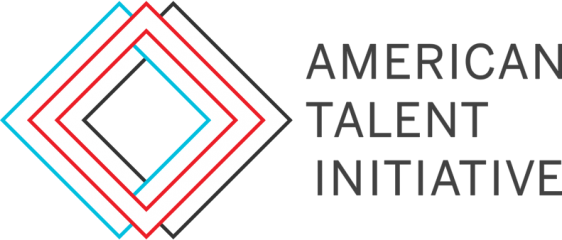Announcing a New Accelerator for College Access and Success
Launching the Promising Practice Accelerator
Adam Rabinowitz
January 25, 2022
Reading Time: 3 minutes
In the business world, accelerator programs provide organizations with the opportunity to translate new and groundbreaking ideas to concrete initiatives. At a time of unprecedented disruption, colleges and universities nationwide must reimagine how to enroll, support, and graduate the tens of thousands of talented students displaced by the pandemic.
Earlier this month, the National Student Clearinghouse revealed Fall 2021 enrollment dropped by 3.1 percent (or 465,300 students), with even more severe declines among students from lower-income and underrepresented backgrounds. In Fall 2020, nearly 10 percent fewer students from lower-income high schools returned for their second year of college than their peers from higher-income high schools, fueling an even wider equity-based graduation gap.
Even so, there is hope. A recent Strada Center survey indicated nearly two-thirds of students from the classes of 2020 and 2021 who postponed college said they were “very or extremely likely to continue their education in the future.” What if colleges and universities could participate in an accelerator devoted to bridging these equity gaps and bringing talented students back into higher education? That is why we launched the Promising Practice Accelerator this month. With $200,000 in funding from Bloomberg Philanthropies, eight ATI members will each receive a $25,000 grant to pilot or expand an initiative this year to improve academic, retention, and graduation outcomes for students from lower-income backgrounds. Selected from 28 member proposals, awardees will pilot cohorts to support the success of students from first-generation backgrounds, create dedicated funds and resources to help increase retention rates, scale new approaches to community college transfer, and promote equity-focused faculty professional development.
Across the eight projects outlined below (and linked to in more detail here), the Promising Practice Accelerator will reach 1,600 talented students nationwide, supporting their efforts to persist through college and earn a bachelor’s degree.
- Barnard College: Extend the reach of Access Barnard, a center established during the pandemic to help offset unexpected financial pressures among low-income and first-generation students. Barnard will expand its “Navigating Barnard” workshop series to address challenges specific to first-generation students, including imposter syndrome and relationship-building with faculty.
- Hope College: Advance its fully funded tuition-free Hope Forward model through several student success-focused initiatives, including: a $10,000 Benevolence Fund to help students address crises, an extension of its Spring Opportunity for Academic Recovery (SOAR) program to 10-15 additional students, and equity-focused professional development for SOAR advisors.
- Lebanon Valley College: Pilot a four-year cohort-based program, providing 20 entering first-year students in Fall 2022 with access to ongoing community-building activities to foster inclusion and belonging, support from academic coaches and peer mentors, and professional networking and on-campus employment opportunities.
- Stevens Institute of Technology: Design and implement a longitudinal study, an interview protocol, and assorted survey materials to track the impact of ADAPT, a new National Science Foundation-funded initiative to support a cohort of 50 high-achieving, low-income STEM undergraduates over four years.
- Stony Brook University: Expand its Faculty Fellowship program, supporting three additional faculty fellows across disciplines to design, implement, and measure the outcomes of meaningful learning experiences that will reach 80 students this spring.
- University of Dayton: Broaden success coaching personnel and resources to fuel its “transfer academy model,” supporting transfer partnerships with Sinclair Community College and Columbus State Community College to reach 200 high-achieving transfer students this spring.
- University of Tennessee, Knoxville: Launch a Fall Kick-Off Institute, a two-day pre-orientation program aiming to offset the stark drop-off in retention rates among 1,400 incoming Pell-eligible students with a high school GPA in the 3.0-3.5 range.
- Wofford College: Pilot a targeted, $1,000 end-of-semester retention award for 50 students with satisfactory academic progress and demonstrated financial need through graduation, offsetting gaps in financial aid that contribute to a higher risk of attrition.
Through the Promising Practice Accelerator, selected institutions will dedicate additional funding to advance these projects on their campuses and ultimately translate these ideas to campuses nationwide through digital resource hubs and practice-sharing networks. ATI will also monitor the progress of each of the selected projects over the next several months, surfacing actionable insights, strategies, and perspectives on this blog and across its channels.
Recent economic trends indicate initiatives like these are more important than ever, with nearly all high-wage jobs of the future requiring a bachelor’s degree. Through the Promising Practice Accelerator, ATI aims to amplify the impact of these projects and support additional, talented students from lower-income backgrounds in the years to come.




